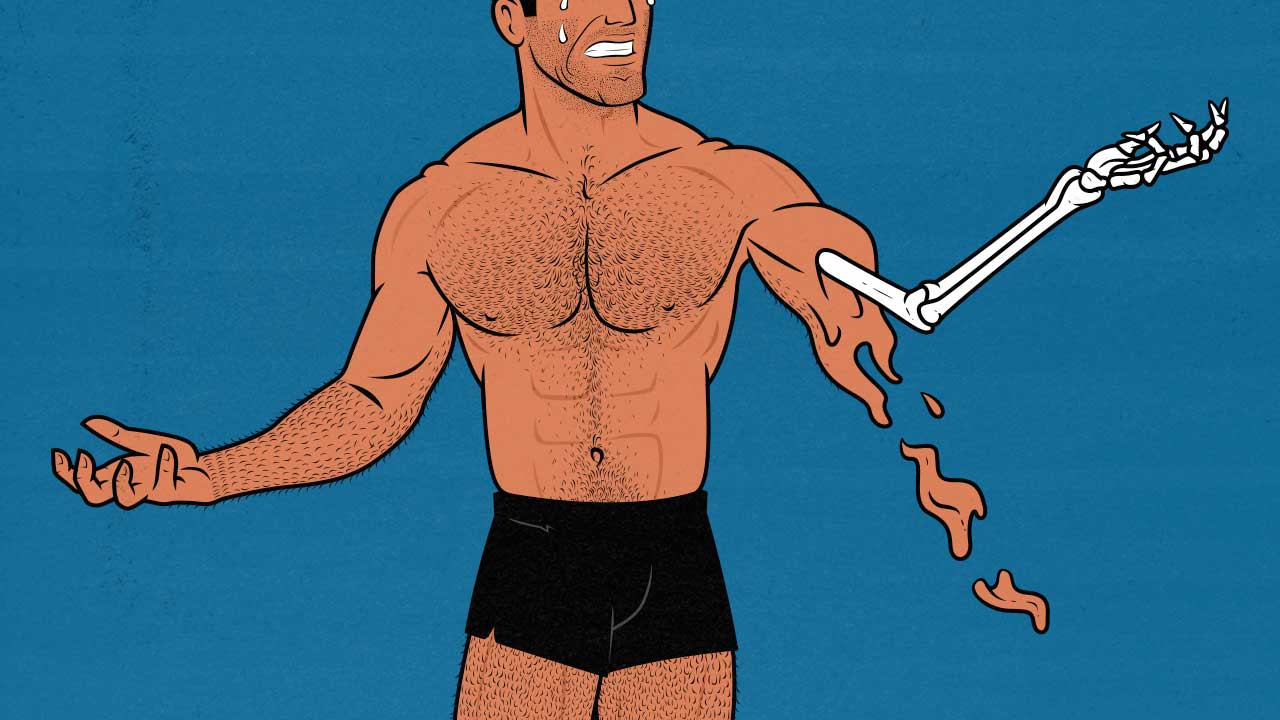Not eating enough can hinder weight loss since the body needs fuel to burn calories. Consuming too few calories may slow down metabolism, making weight loss more challenging.
To achieve weight loss effectively, it is crucial to strike a balance between calorie intake and expenditure. Proper nutrition and regular exercise play vital roles in maintaining a healthy weight. By fueling the body adequately and engaging in physical activity, one can support weight loss efforts and improve overall well-being.
Remember, sustainable weight loss involves a holistic approach that focuses on healthy habits and lifestyle changes.

The Myth Explored
It is a common belief that not eating enough will hinder weight loss. However, this is a myth that has been perpetuated by diet culture. The origins of this myth are unclear, but it is likely due to a misunderstanding of how the body uses energy. While it is true that consuming too few calories can slow down metabolism, this does not mean that weight loss is impossible. In fact, many studies have shown that reducing calorie intake can lead to weight loss, even if the reduction is significant. Therefore, it is important to focus on a balanced and sustainable diet that provides enough nutrients while also creating a calorie deficit.
How The Body Processes Food
It’s a common misconception that not eating enough will prevent weight loss. The reality is that the body’s metabolism is influenced by various factors. Caloric intake is the energy obtained from food, while caloric burn refers to the energy the body expends. The body’s metabolism is constantly active, even at rest, as it performs essential functions such as breathing and circulating blood. When the body doesn’t receive enough calories, it can slow down its metabolic rate in an effort to conserve energy. This can hinder weight loss efforts. To achieve healthy and sustainable weight loss, it’s important to strike a balance between caloric intake and caloric burn through a combination of a nutritious diet and regular physical activity.
Starvation Mode: Fact Or Fiction?
There is a common belief that if you don’t eat enough, your body goes into “starvation mode” and holds onto fat, making it difficult to lose weight. However, scientific evidence does not fully support this notion.
While it is true that reducing calorie intake can slow down metabolism, the extent to which this occurs varies among individuals. Some studies suggest that metabolic rate may decrease by up to 20% in response to severe calorie restriction, but this effect is temporary and tends to normalize over time.
Moreover, the body has mechanisms in place to prevent starvation. When food intake is limited, it adjusts by conserving energy and breaking down stored fat for fuel. This means that weight loss is still possible, even in the absence of sufficient calorie consumption.
Ultimately, weight loss depends on creating a calorie deficit, either through reducing intake or increasing physical activity. While eating too little can have negative consequences on health, the idea that not eating enough prevents weight loss is not entirely accurate.
Healthy Weight Loss Strategies
It is a common misconception that not eating enough can lead to weight loss. In reality, skipping meals and severely restricting calories can actually slow down the metabolism and hinder weight loss. The key to healthy weight loss is a balanced diet that provides essential nutrients and sustained energy. Additionally, regular exercise plays a crucial role in achieving and maintaining a healthy weight. By incorporating both a nutritious diet and physical activity into your lifestyle, you can achieve long-term weight management and overall well-being.
Nutritional Deficiencies And Risks
Not eating enough can lead to various nutritional deficiencies and health risks. Under-eating can result in inadequate intake of essential nutrients such as vitamins, minerals, and macronutrients, leading to a compromised immune system and impaired bodily functions. Long-term consequences may include weakened bones, hair loss, and hormonal imbalances. It can also lead to muscle wasting, fatigue, and dizziness, impacting overall physical and mental well-being. Furthermore, under-eating may result in poor concentration, mood swings, and decreased energy levels. Therefore, it is crucial to maintain a balanced diet to support overall health and prevent the adverse effects of under-eating.

Listening To Your Body
Eating enough is crucial for weight loss. Listening to hunger cues and understanding satiation are key. Your body signals when it needs fuel. Ignoring hunger cues can hinder weight loss progress. Being mindful of hunger levels can help maintain a healthy weight.
Success Stories: Finding Balance
| Success Stories: Finding Balance |
| Real-life Examples |
| Learning from Mistakes |
Skipping meals can slow down your metabolism. Balanced meals are crucial for weight loss. Healthy snacks can help manage hunger. Portion control is key to success. Consistent exercise is important for health.
Expert Advice On Dieting Myths
Skipping meals does not help with weight loss. Nutritionists emphasize that eating balanced meals regularly is crucial. Not consuming enough food can slow down metabolism. It’s important to listen to your body’s hunger cues and eat mindfully. Focus on nutrient-dense foods to support overall health and weight management.

Frequently Asked Questions
Q: Is It True That Not Eating Enough Will Prevent Weight Loss?
A: Yes, it’s true. When your body doesn’t get enough calories, it goes into starvation mode and slows down your metabolism, making it harder to lose weight.
Q: Can Eating Too Little Make You Gain Weight?
A: Surprisingly, yes. Eating too little can cause your body to hold onto fat, making it harder to lose weight. Your body may also break down muscle tissue for energy, which can slow down your metabolism.
Q: How Many Calories Do I Need To Eat To Lose Weight?
A: It depends on your age, gender, weight, and activity level. A general rule of thumb is to create a calorie deficit of 500-1000 calories per day for a safe and sustainable weight loss of 1-2 pounds per week.
Q: What Happens If I Don’t Eat Enough Protein While Trying To Lose Weight?
A: Protein is essential for building and repairing muscle tissue, and it also helps you feel full and satisfied. Not getting enough protein can lead to muscle loss, a slower metabolism, and increased hunger cravings.
Conclusion
It is a common misconception that not eating enough will lead to weight loss. However, the truth is that depriving your body of the nutrients it needs can actually hinder your weight loss efforts. It is important to find a balance and consume a well-rounded diet to support your metabolism and overall health.
Remember, sustainable weight loss comes from healthy habits, not extreme restrictions.

